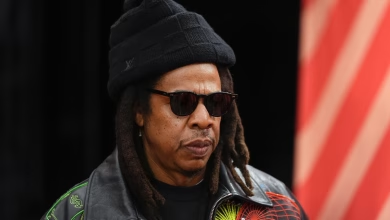A bipartisan coalition of 14 attorneys general from various states has filed lawsuits against TikTok, alleging the platform has “addicted” young people and negatively impacted their mental health. The lawsuits, submitted on Tuesday, highlight multiple aspects of TikTok’s platform, including its infinite scrolling feed, “challenge” videos that may encourage risky behavior, and late-night push notifications that disrupt sleep for young users.
The legal actions were filed separately by members of the coalition, which is co-led by New York Attorney General Letitia James and California Attorney General Rob Bonta. These lawsuits represent a new wave of legal challenges facing TikTok, which is already contending with a potential ban in the U.S., a lawsuit from the U.S. Justice Department regarding unlawful data collection from children, and various state actions.
In June, New York’s governor signed a bill aimed at regulating social media algorithms, mandating that platforms display content in chronological order for users under 18, a change that could force TikTok to modify its operations significantly. Additionally, last month, 42 state attorneys general urged U.S. Surgeon General Vivek Murthy to implement labels on social media apps warning about potential harms to young users.
“We strongly disagree with these claims, many of which we believe to be inaccurate and misleading,” said TikTok spokesperson Alex Haurek in a statement. “We’re proud of and remain deeply committed to the work we’ve done to protect teens, and we will continue to update and improve our product. We provide robust safeguards, proactively remove suspected underage users, and have voluntarily launched safety features.”
TikTok has consistently asserted its commitment to child safety, offering features like default screentime limits for young users and optional parental oversight tools. Haurek noted that TikTok has “endeavoured to work with the Attorneys General for over two years, and it is incredibly disappointing they have taken this step rather than work with us on constructive solutions to industry-wide challenges.”
However, the attorneys general argue that TikTok’s efforts fall short. “TikTok’s underlying business model focuses on maximizing young users’ time on the platform so the company can boost revenue from selling targeted ads,” they stated. “TikTok uses an addictive, content-recommendation system designed to keep minors on the platform as long as possible and as often as possible, despite the dangers of compulsive use.”
In her complaint, Attorney General James claims TikTok “knows that compulsive use of and other harmful effects of its platform are wreaking havoc on the mental health of millions of American children and teenagers.” The lawsuit also contends that TikTok considers users under the age of 13 a critical demographic, despite restricting access to those 13 and older. The complaint references internal TikTok documents, which are heavily redacted.
James further alleges that the platform’s prioritization of profit over safety has led to significant financial gain, citing TikTok’s 2023 U.S. revenue of $16 billion. The complaint also includes a Harvard study indicating that TikTok earned $2 billion in ad revenue from U.S. teens aged 13 to 17 in 2022.
The lawsuit criticizes TikTok’s beauty filters, claiming they promote unhealthy social comparisons and body image issues by creating “an impossible standard” for teens. It also highlights dangerous trends, such as TikTok “challenges,” where users replicate risky stunts. The complaint mentions a tragic incident earlier this year in which a teen boy died while attempting a stunt known as “subway surfing,” which was promoted through TikTok.
James also accuses TikTok of violating the U.S. Children’s Online Privacy Protection Act (COPPA) by failing to prevent children under 13 from joining the platform and collecting their personal information without parental consent. The complaint asserts that TikTok claims its platform is not for children under 13, yet features child-directed content and advertisements.
“By maximizing the TikTok platform’s addictive properties, TikTok has cultivated a generation of young users who spend hours per day on its platform more than they would otherwise choose to which is highly detrimental to teens’ development and ability to attend to personal needs and responsibilities,” the complaint states. The lawsuit seeks financial penalties against TikTok, including a demand for the platform to repay profits gained from advertisements aimed at New York teens or pre-teens.
In conjunction with these lawsuits, the U.S. Centers for Disease Control and Prevention (CDC) released a report emphasizing the extensive role social media plays in the lives of American teenagers and its significant association with mental health issues. Data from the Youth Risk Behavior Survey indicates that more than 75% of high school students are frequently online, with about 30% using social media more than once an hour.
Students who reported high social media usage were more likely to experience negative emotions than those who used it less frequently. Approximately 43% of high school students who frequently use social media reported persistent feelings of sadness or hopelessness, compared to 32% of those who used it less often. The survey also revealed that teen girls are more likely to report poor mental health and frequent social media use.
The Youth Risk Behavior Survey has been conducted by the CDC for over 30 years to assess the well-being of American high school students. The latest report, which includes data from 2023, captures responses from more than 20,000 students across a nationally representative sample of 155 schools.
